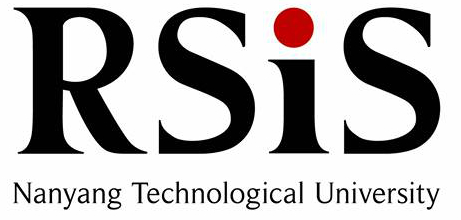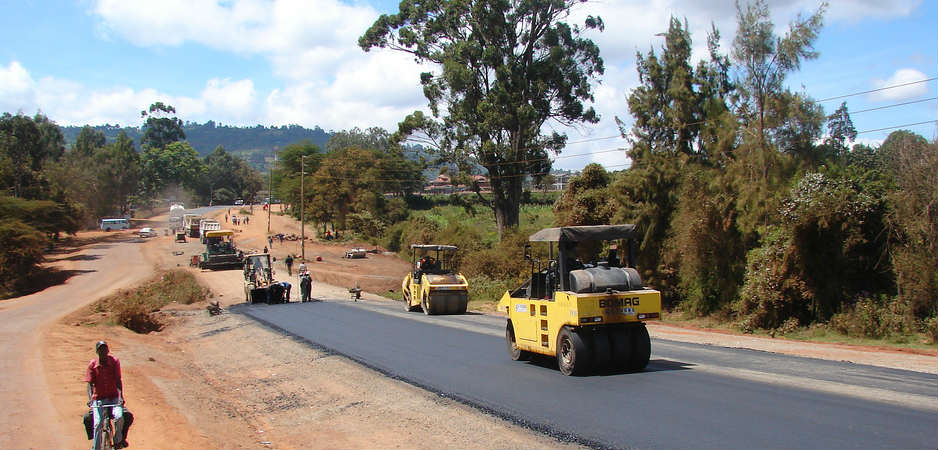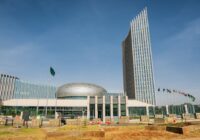African nations are turning to Asia for partners in development. Can Malaysia pave the way for an ASEAN-Africa model?
With an increasingly heavy investment footprint spanning the length and breadth of the African continent, Malaysia is establishing itself as an important dynamic in the emerging ASEAN-Africa nexus.
In the run-up to the Bandung Asia-Africa Summit in April 2015, statements from Malaysian Prime Minister Najib Razak’s office suggested a long-range view for enhancing relationships on the continent. Driven by “commitment in strengthening cooperation” and achieving “prosperity through South-South cooperation,” Malaysia is expressing great enthusiasm and commitment to exploring opportunities in Africa.
Indeed, Africa could find itself playing a central role as part of Malaysia’s effort to develop a latticework of political and trade relationships with developing nations. Since the 1990s, Singapore’s northern neighbor has undertaken a sustained effort to build partnerships across the developing world as part of its vision to achieve greater resiliency on the global stage through political and economic diversification. In the wake of the recent financial crisis, this aspiration has all but certainly been renewed.
Taking note of Africa’s burgeoning investment opportunities, which have delivered some of the highest returns globally in recent years, Malaysia has responded with ever larger amounts of foreign direct investment (FDI) that have blazed a trajectory of consistent 20% year-on-year growth over the past decade. These FDI flows culminated at a whopping $19.3 billion in 2011, eclipsing those of both China and India on the continent, and following behind only the United States and France as the third largest international investor that year.
Malaysian firms can now be found operating in a wide range of sectors across Africa, including resource extraction, hotel and leisure, shopping and financial services. The diversity of undertakings reflects Malaysia’s own recent transformation into a more multi-sectored and dynamic economy, and it indicates the private sector’s appetite to establish meaningful in-roads into frontier markets well-beyond the Association of Southeast Asian Nations (ASEAN).
Malaysian company Probase Manufacturing Sdn Bhd, for example, completed its first road development project in Kenya this past June, which leveraged new soil technology to cut the expected price tag of such a project by more than half, while in the process pricking the interests of Rwanda and Swaziland to undertake similar pilot projects worth $3 million each in their countries. Other companies, like Pacific Inter-Link, are already long established with a well-entrenched presence on the continent with regional offices in markets like Ethiopia, Nigeria and Ghana, among others, that are engaged in manufacturing and commodities trading.
Next Wave of Opportunities
While Africa may not be reciprocating in terms of FDI, the relationship is nonetheless a two-way street of growing awareness and integration. Preceding the 2011 investment surge, 2010 was marked by an equally rapid increase in the number of African students enrolling in Malaysian universities. According to official UNESCO figures, Malaysia welcomed 120% more African student enrolments in 2010, reaching 11,825 from 5,373 in the previous year.
This number has only continued to rise thereafter. Political engagement has also been two-way, with the Malaysian agenda driven by a robust network of diplomatic missions on the continent that is comparatively larger than many of its ASEAN counterparts.
This current rhythm of engagement is priming the Malaysia-Africa corridor to take advantage of the next wave of opportunity. According to the Malaysia International Islamic Financial Centre, there are increasingly attractive and feasible possibilities for linking Kuala Lumpur’s bustling Islamic finance community to address substantial investment needs for critical African infrastructure projects.
Several African nations have already successfully turned to the global sukuk (Islamic bond) market for funding. When considering the ongoing $31 billion per year funding gap for infrastructure on the continent, Malaysian underwriting could play a relevant role in advancing the continent’s broader economic development agenda. With Africa currently accounting for less than 3% of global Islamic banking assets, this is the next frontier for Islamic finance.
Similarly, the halal industry presents Malaysia with excellent opportunities for joint-entries into Africa with ASEAN regional partners in Singapore and Indonesia. Halal players in food, travel and lifestyle products should begin incorporating Africa into their global expansion strategy, if they have not already, with a view to tapping into the fastest growing middle-class in the world, dense urban centers and a nearly 30% Muslim population.
Smart Partnerships
Through smart partnerships, the risk and complexity associated with first market entry can be reduced, enabling companies to increase the probability of success in securing a strategic foothold while Africa’s competition barriers are still low.
 As the largest exporter of halal goods in the world already, with exports reaching to around $11 billion in 2013, Malaysia is well-positioned to lead such a charge into Africa. The global halal market is rapidly expanding beyond the traditional confines of the food and beverage space, to include products such as cosmetics, tourism and health products, becoming a more holistic concept.
As the largest exporter of halal goods in the world already, with exports reaching to around $11 billion in 2013, Malaysia is well-positioned to lead such a charge into Africa. The global halal market is rapidly expanding beyond the traditional confines of the food and beverage space, to include products such as cosmetics, tourism and health products, becoming a more holistic concept.
Although Africa currently represents only 15% of this global market, the continent’s population is expected to double to about 1.9 billion by 2050, with the Muslim population growing at a rate of 170%—both highly favorable growth drivers ahead for halal.
While the ASEAN-Africa nexus is still in nascent stages, Malaysia is standing out as a trailblazer for new markets and industries. Africa is rising and its nations are turning to Asia for partners in development. With Malaysia on track to achieve First-World status by 2020, it is a development showcase for what this once mislabeled “hopeless” continent is set to achieve in its own right in the coming decades.
*[This article was originally published by Fair Observer’s content partner, the S. Rajaratnam School of International Studies.]
The views expressed in this article are the author’s own and do not necessarily reflect Fair Observer’s editorial policy.
Photo Credit: Computerwhiz417 / Flickr
 We bring you perspectives from around the world. Help us to inform and educate. Your donation is tax-deductible. Join over 400 people to become a donor or you could choose to be a sponsor.
We bring you perspectives from around the world. Help us to inform and educate. Your donation is tax-deductible. Join over 400 people to become a donor or you could choose to be a sponsor.
Support Fair Observer
We rely on your support for our independence, diversity and quality.
For more than 10 years, Fair Observer has been free, fair and independent. No billionaire owns us, no advertisers control us. We are a reader-supported nonprofit. Unlike many other publications, we keep our content free for readers regardless of where they live or whether they can afford to pay. We have no paywalls and no ads.
In the post-truth era of fake news, echo chambers and filter bubbles, we publish a plurality of perspectives from around the world. Anyone can publish with us, but everyone goes through a rigorous editorial process. So, you get fact-checked, well-reasoned content instead of noise.
We publish 2,500+ voices from 90+ countries. We also conduct education and training programs
on subjects ranging from digital media and journalism to writing and critical thinking. This
doesn’t come cheap. Servers, editors, trainers and web developers cost
money.
Please consider supporting us on a regular basis as a recurring donor or a
sustaining member.
Will you support FO’s journalism?
We rely on your support for our independence, diversity and quality.






